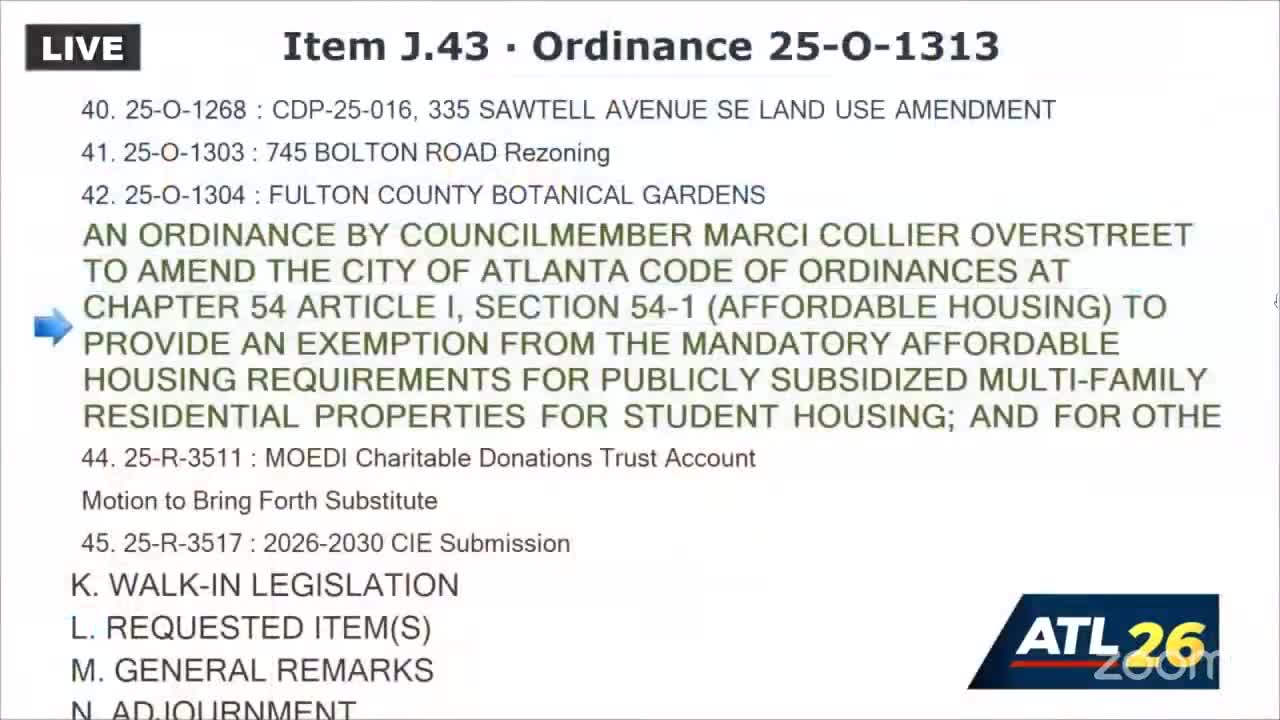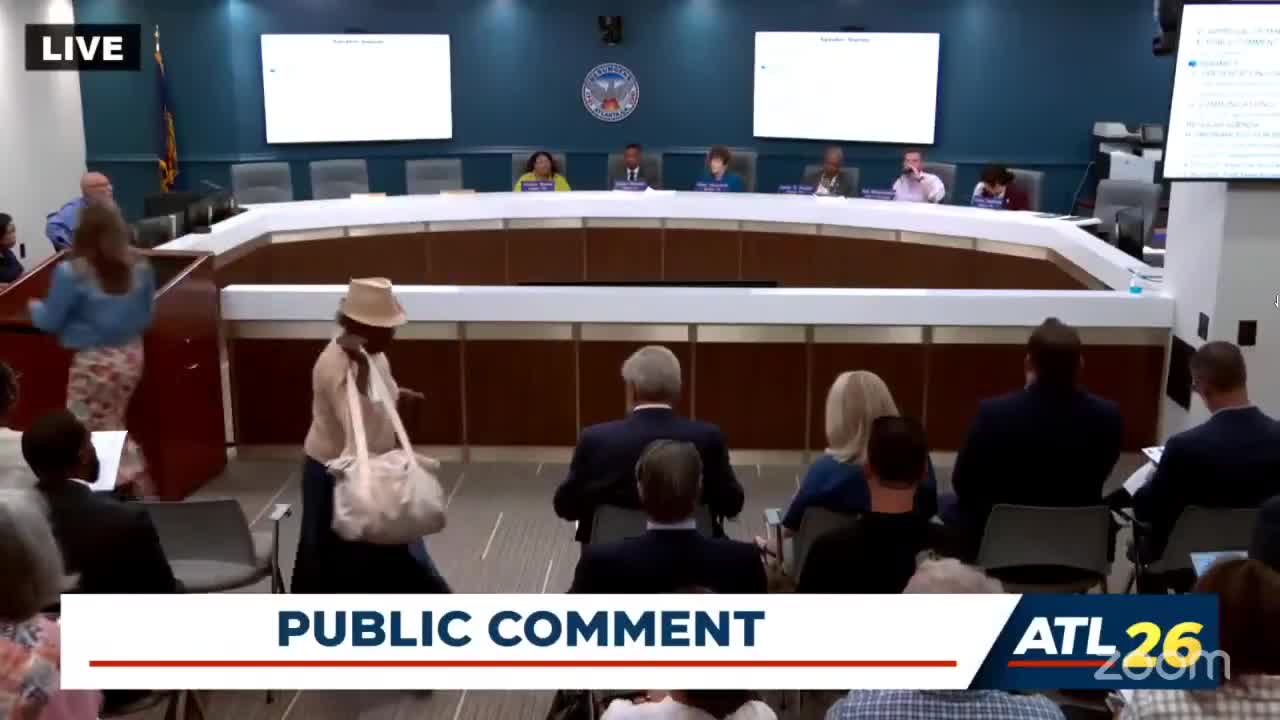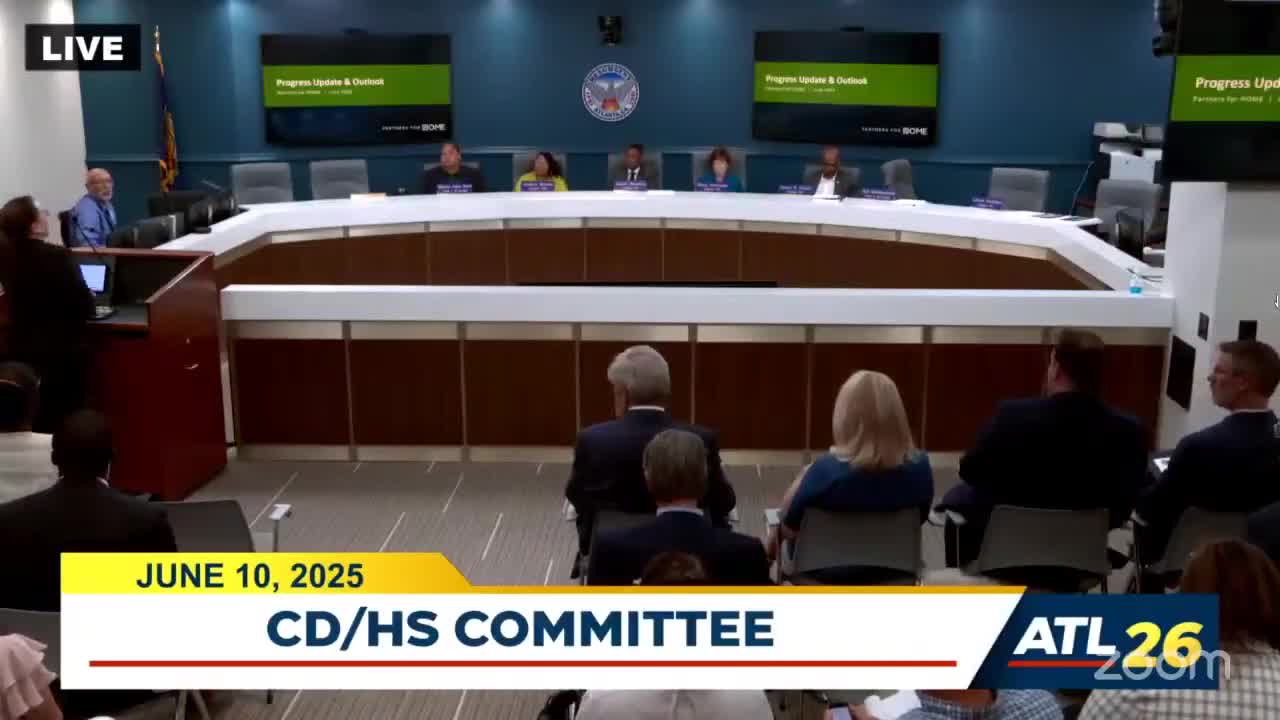Article not found
This article is no longer available. But don't worry—we've gathered other articles that discuss the same topic.

Committee adopts Trails ATL plan to expand citywide trail network; staff to pursue zoning and funding integration

Council committee approves substitute tree protection ordinance, raises recompense and funds senior assistance program

